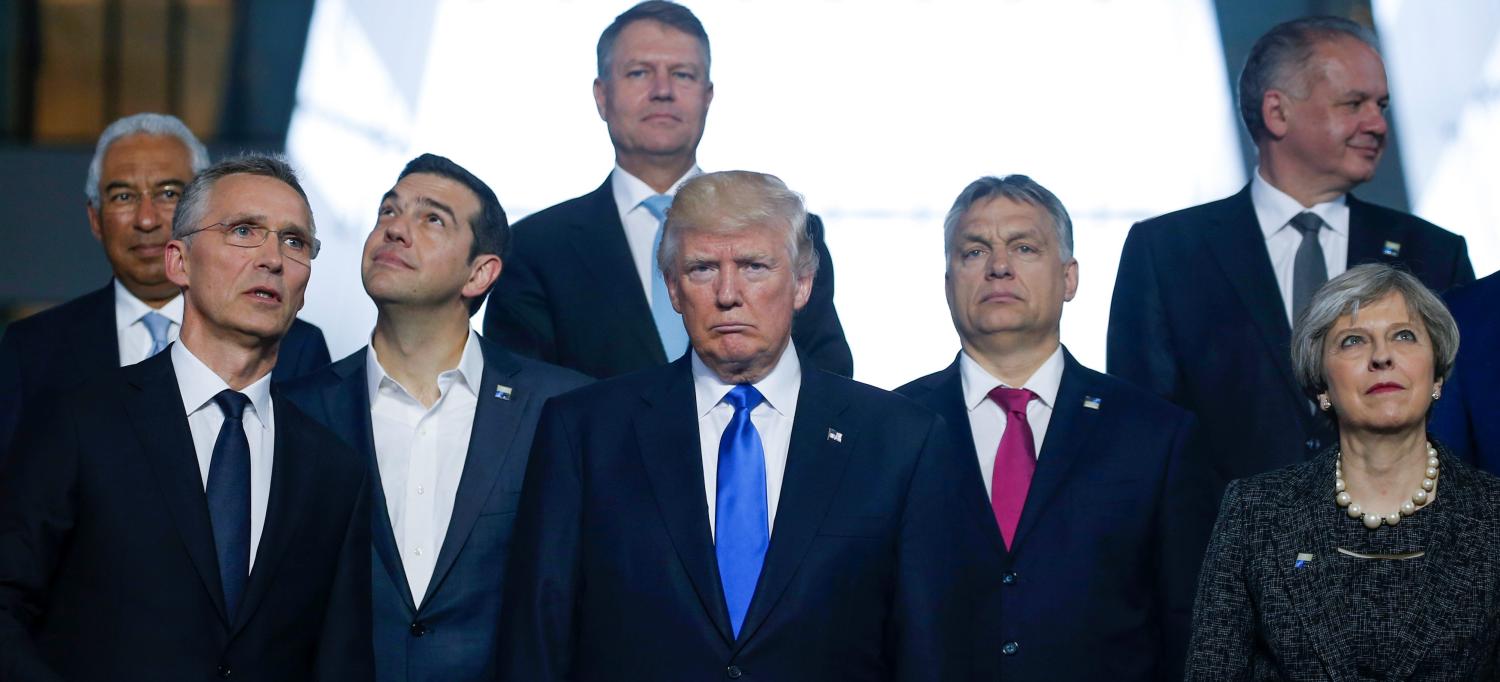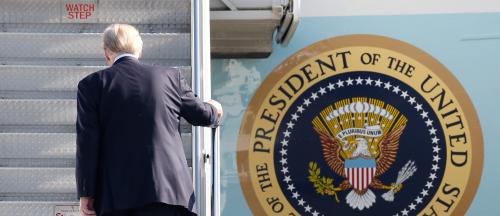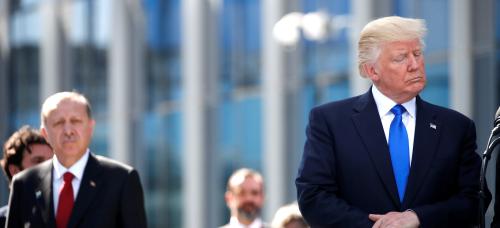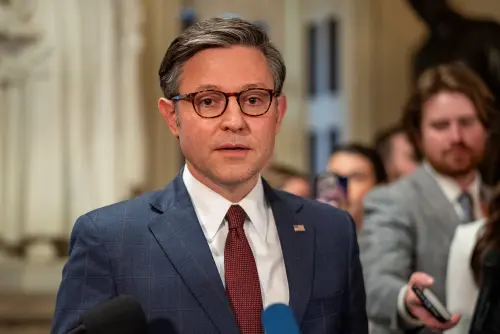The United States faces an important strategic choice in its approach to Europe and should engage more deeply in positively shaping a Europe that is coherent, prosperous, and effective on the world stage, Thomas Wright argues in the first of a series of papers for the Brookings – Robert Bosch Foundation Transatlantic Initiative (BBTI). An earlier version of this paper was prepared for the event “The German election and the future of the trans-Atlantic relationship.”
 Over the past 10 years, starting in the Obama administration and accelerating in the Trump administration, the United States has retrenched diplomatically and politically from Europe. The commitment to NATO stands out as the exception rather than the rule in U.S.-European relations. While the continent faces a wide array of problems—including the eurocrisis, Russia, refugees, the erosion of democracy in Central and Eastern Europe, Brexit, regional separatism, difficult relations with Turkey, and terrorism—Washington is strikingly absent from efforts to resolve them. This paper examines the legacy of U.S. political engagement in Europe, how the continent is likely to address its numerous challenges as it is left behind by the United States, and what a post-American Europe means for Washington.
Over the past 10 years, starting in the Obama administration and accelerating in the Trump administration, the United States has retrenched diplomatically and politically from Europe. The commitment to NATO stands out as the exception rather than the rule in U.S.-European relations. While the continent faces a wide array of problems—including the eurocrisis, Russia, refugees, the erosion of democracy in Central and Eastern Europe, Brexit, regional separatism, difficult relations with Turkey, and terrorism—Washington is strikingly absent from efforts to resolve them. This paper examines the legacy of U.S. political engagement in Europe, how the continent is likely to address its numerous challenges as it is left behind by the United States, and what a post-American Europe means for Washington.
The Trump administration and future U.S. administrations face a strategic choice between (1) taking short-term advantage of European divisions even if it might spur disintegration, (2) benign disinterest in Europe’s internal problems, and (3) a return to deep engagement in positively shaping a Europe that is coherent, prosperous, and effective on the world stage. Engagement may be a difficult sell domestically, but it is the best way of ensuring that Europe is a full partner of the United States in upholding the postwar international order of alliances, an open global economy, and support for democracy. However, Europeans cannot count on the United States consistently pursuing such engagement, and must continue efforts to strengthen autonomous European capabilities.







